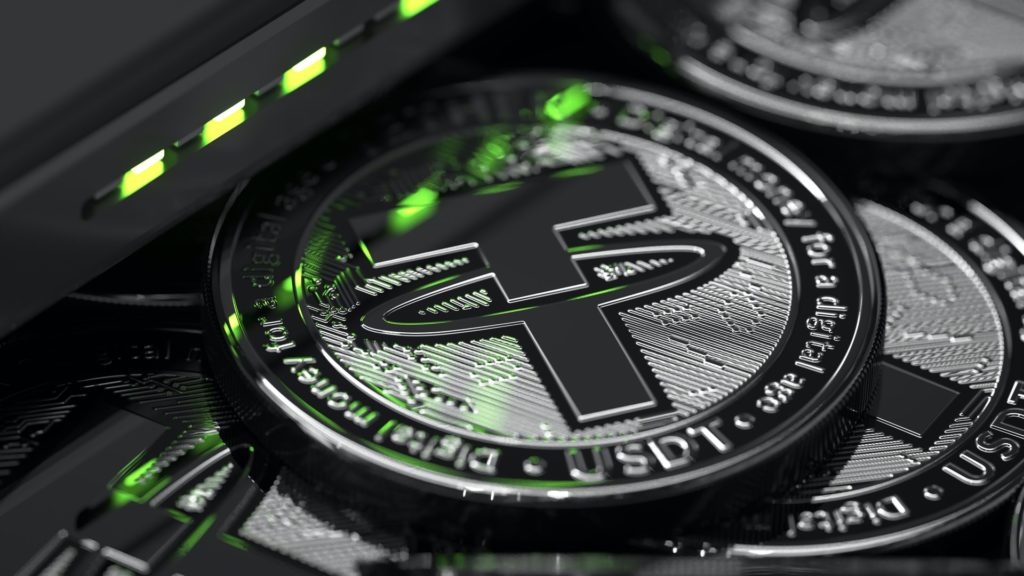
What is the Metaverse?
Is the metaverse the future? From Mark Zuckerberg changing the name of Facebook to Meta, to games that generate various incomes for their users, the metaverse seems to be the future of how we interact with each other.

You may have already seen the USDT symbol before, or have heard the name of the cryptocurrency Tether. Here we explain to you what it is, and how it works.
Tether or USDT for its acronym in English, is a cryptocurrency categorized as a stablecoin.
Tether is a cryptocurrency based on Blockchain technology, and its value remains par with the value of the US dollar.
If you see the value of Tether on cryptocurrency prices webpages, you will notice that its value does not fluctuate much from $1.00, and that is why it is considered stable.
The fundamentals under which it was created say that, for each circulating token of Tether in the market, there is an equivalent amount of dollars in reserve, which allows it to always maintain its value.
Typically, Tether remains within the top 5 cryptocurrencies by market value.
Fuente: El Canal de Shackra│Canal de YouTube │Adaptación del video original de weusecoins.com
Tether serves as a fast, efficient and low-cost way to be able to convert highly volatile cryptocurrencies such as Bitcoin and Ethereum among others, into a cryptocurrency that has at all times, the same value as the US dollar.
This increases the degree of investor confidence and injects liquidity into the world of cryptocurrencies, since there is no immediate need to convert cryptocurrencies to fiat currency (the dollar for example), which has a higher cost and is less efficient.
Tether was founded in 2014 by J.R. Willet, who at the time, was working on a Mastercoin along with Brock Pierce and Craig Sellars.
They were looking to create a blockchain platform that would serve as a communications protocol and that would work on top of Bitcoin. With this Mastercoin, it would be possible to create a series of layers on top of Bitcoin, in which it would be possible to execute other cryptocurrencies or tokens.
Brock Pierce and Craig Sellars were members of the Mastercoin Foundation and believed that there was an enormous potential to build something even bigger. For this reason, in 2014, Pierce and Sellars presented their project called Realcoin, which was launched using the Omni Layer protocol.
With the use of Omni Layer, Pierce and Sellars were able to launch Realcoin using the Bitcoin blockchain. This would allow them to generate, send, exchange, redeem, pay dividends and make bets with tokens that represent any type of asset. All this working on a second layer built on top of Bitcoin and operated directly by the Omni protocol.
On November 20, 2014, Tether CEO Reeve Collins announced that the project would be renamed to “Tether”. At that time, he also indicated the creation of three currencies: USTether (USDT), EuroTether (EURT) and YenTether (YENT). With this, Collins presented to the world the birth of three stablecoins, thus beginning the history of USDT and its sister coins.

In 2015, Bitfinex decides to add USDT and its sister cryptocurrencies to its platform. This adoption was criticized because of the partnership between Bitfinex and the company Tether Holdings Limited. Tether Limited, the company responsible for this token and based in Hong Kong, is a subsidiary of Tether Holdings Limited.
In September 2017, Tether announced that it would launch additional ERC-20 tokens for US dollars and euros on the Ethereum blockchain.
Thanks to this, Tether was able to take its tokens to the two largest blockchains (Bitcoin and Ethereum). This boosted Tether’s presence on trading platforms quickly.
Today, the USDT exchange accounts for close to 80% of the entire Bitcoin exchange, although this number is rapidly decreasing due to the strong competition from other stablecoins such as USDC, among others.
Do you want to know more about USDC? Click here.
There are several reasons why stablecoins were created and why they have gained such popularity and use in the world of cryptocurrencies. Here we highlight some of those reasons:
Do you wonder how it is possible that Tether, a cryptocurrency, is not volatile and unstable?
This is a very fair question and we explain to you why this is not the case, just below.
Tether is tied to another asset, in this case the US dollar. The issuers of the cryptocurrency, in this case Tether Limited, establish and state that they safeguard the value of the currency by keeping in their reserves at all times, the same amount of real dollars as the number of circulating tokens, thus ensuring at all times the parity between the two, and that if it is necessary to convert the entire value of the cryptocurrency to fiat currency (the one we use every day), that money does exist to support that exchange.
The prior statement has been seriously questioned by several institutions and people within the crypto environment.
In recent years, a lot of controversy and doubts have arisen around Tether.
This is largely due to the lack of transparency due to the lack of their leaders and the absence of reserves audits by authorized third parties.
Even after an incident where Bitfinex lost $850 million, Tether Limited loaned it the same amount in Tether and then changed its official reserve policies to ones that make it unclear whether the reserve parity with the dollar holds.
This is why other stablecoins such as USDC have been born, which each year gains more ground in the world of cryptocurrencies and offers transparent audits every month.
Do you want to know more about USDC? Click here.
If you want to buy your first cryptocurrencies, we have several very complete tutorials for you, all guided by Michibit, your crypto kitty friend.
Just click below, and we will guide you step by step, safely.

Is the metaverse the future? From Mark Zuckerberg changing the name of Facebook to Meta, to games that generate various incomes for their users, the metaverse seems to be the future of how we interact with each other.

NFTs are perhaps one of the most exciting creations that the blockchain has brought about, and their potential goes far beyond collectible jpegs.
